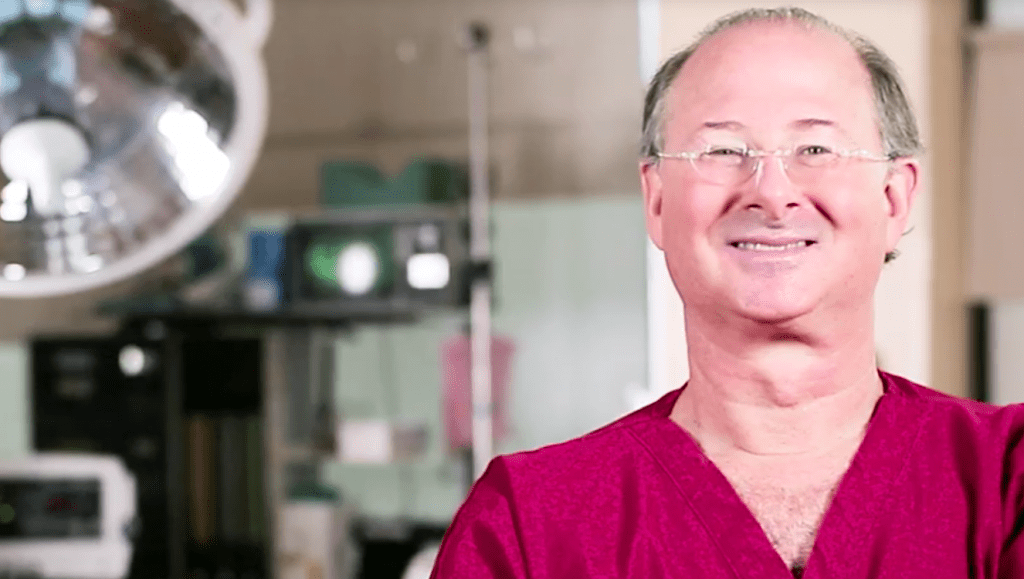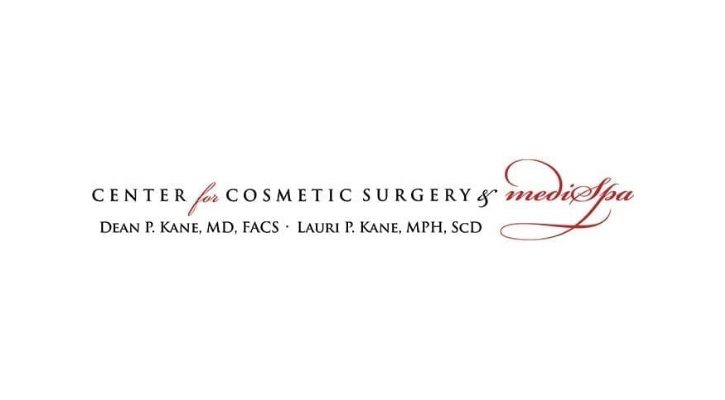
Dr. Dean Kane in the Center for Cosmetic Surgery & Medspa’s Surgery Suite
Q. How safe are Office-based Surgery Suites?
A. Since 1980, the numbers of non-hospital surgical facilities has increased dramatically. Around the year 2000, medical insurance concepts had changed by defining all elective surgical activities as out-patient procedures; admitting a patient to an in-patient status only when complicated by co-morbidities requiring in-hospital services. This provided the insurance industry significant cost savings since most patients did not require the initial recovery services of a hospital. With a shift in patient care to the out-patient setting, including gynecology, urology, vascular surgery, otolaryngology and aesthetic surgery, challenges and competition became more apparent between the hospital, the ASC (free standing multi-specialty ambulatory surgery centers) and the OBSS (office-based surgery suites). Concerns regarding the safety of each has escalated.
“The study, “Is Office-Based Surgery Safe? Comparing Outcomes of 183,914 Aesthetic Surgical Procedures Across Different Types of Accredited Facilities”, by James Grotting MD, et.al. using the CosmetAssure insurance database, DOI: http://dx.doi.org/10.1093/asj/sjw138 , 23 August 2016 is the largest, prospective investigation to evaluate the safety of cosmetic surgery in OBSS and compare it to other types of accredited facilities. Their findings demonstrate low major complication rates in OBSS, further adding confidence to the validity of other published literature demonstrates the safety of office-based procedures. The study compared outcomes at OBSS to ASCs and hospitals, factors that may influence outcomes such as demographics (BMI, DM, smoking), number of procedures and body region (face, trunk and extremity). Furthermore, variability in facility accreditation and board certification was eliminated since all procedures in the CosmetAssure database are performed by ABPS board-certified plastic surgeons or ASPS Candidates for Membership who have passed the American Board of Plastic Surgery Written Examination at accredited facilities only.
Between May 2008 and May 2013, a total of 183,914 cosmetic surgery procedures were performed on 129,007 patients enrolled in the CosmetAssure program and this study. Overall, the mean age was 40.9 ± 13.9 years (range, 5-93 years), BMI 24.3 ± 4.6 kg/m2 (range, 17.0-56.3 kg/m2), and the majority of patients were women (93.5%). Most procedures were performed at ASCs (57.4%, n = 73,994), followed by hospitals (26.7%, n = 34,477) and OBSS (15.9%, n = 20,536). By body region, 21.3% of patients at OBSS underwent face procedures, compared to 15.5% of ASC and 14.1% of hospital patients. At ASCs, 49.1% of patients had breast procedures compared to 40.7% of OBSS and 39.5% of hospital patients. Proportionally, more body procedures were performed at hospitals (31.1%) rather than OBSS (26.6%) or ASCs (21.5%). A total of 41,886 (32.5%) patients underwent combined procedures. Patient operated in an OBSS were less likely to undergo combined procedures (30.3%) compared to ASC (31.8%) and hospital (35.3%, P < .01).
Complication rates in OBSS, ASCs, and hospitals were 1.3%, 1.9%, and 2.4%, respectively. On multivariate analysis, there was a lower risk of developing a complication in an OBSS compared to an ASC (RR 0.67, 95% CI 0.59-0.77, P < .01) or a hospital (RR 0.59, 95% CI 0.52-0.68, P < .01).”
In other word, patients were stratified according to their risk of surgery. Those with more medical concerns and more complicated procedures tended to be operated on in a facility with greater medical back-up opportunity. Having said that, unless a patient is operated on in the in-patient Operating Room within the confines of the hospital, all out-patient surgery units whether on the grounds of the hospital campus, a free-standing ASC or OBSS would be required to offer immediate emergency aid to a patient in dire need and call 911 for ambulance assistance and transfer to the nearest available hospital Emergency Department.
“Their study recommends that plastic surgery should be performed at an OBSS which has been properly accredited and appropriately equipped.
In conclusion, OBSS are a reasonable alternative to ASC and hospitals for cosmetic procedures. Accredited OBSS are a safe environment for board-certified plastic surgeons to conduct single, combined, or complex cosmetic surgical procedures. This may translate to reduced costs and better patient satisfaction without compromising safety. However, plastic surgeons should continue to triage their patients carefully for candidacy based on variables such as ASA class and other significant comorbidities.”
Each medical and surgical specialty provides standards of care for physicians within their profession including surgical technique. In addition, each state has unique legislation and regulation to provide safety for its populace. The Practice of Dean P. Kane, MD abides by and goes beyond the AAAASF (the American Association for Accreditation of Ambulatory Surgery Facilities) to ensure our patients of a safe and comfortable surgical experience at the highest levels of our ability. I trust this information is helpful in making a elective, cosmetic surgery decision.
All the best!
This information is not meant as medical advice. It is provided solely for education. Our practice would be pleased to discuss your unique circumstances and needs as they relate to these topics.
Give us a call at 410.602.3322 and make an appointment soon. We’re located on Reservoir Circle just a block off the Baltimore beltway, convenient to greater Baltimore, Annapolis, the Eastern Shore, Southern Pennsylvania, Delaware and Frederick.



